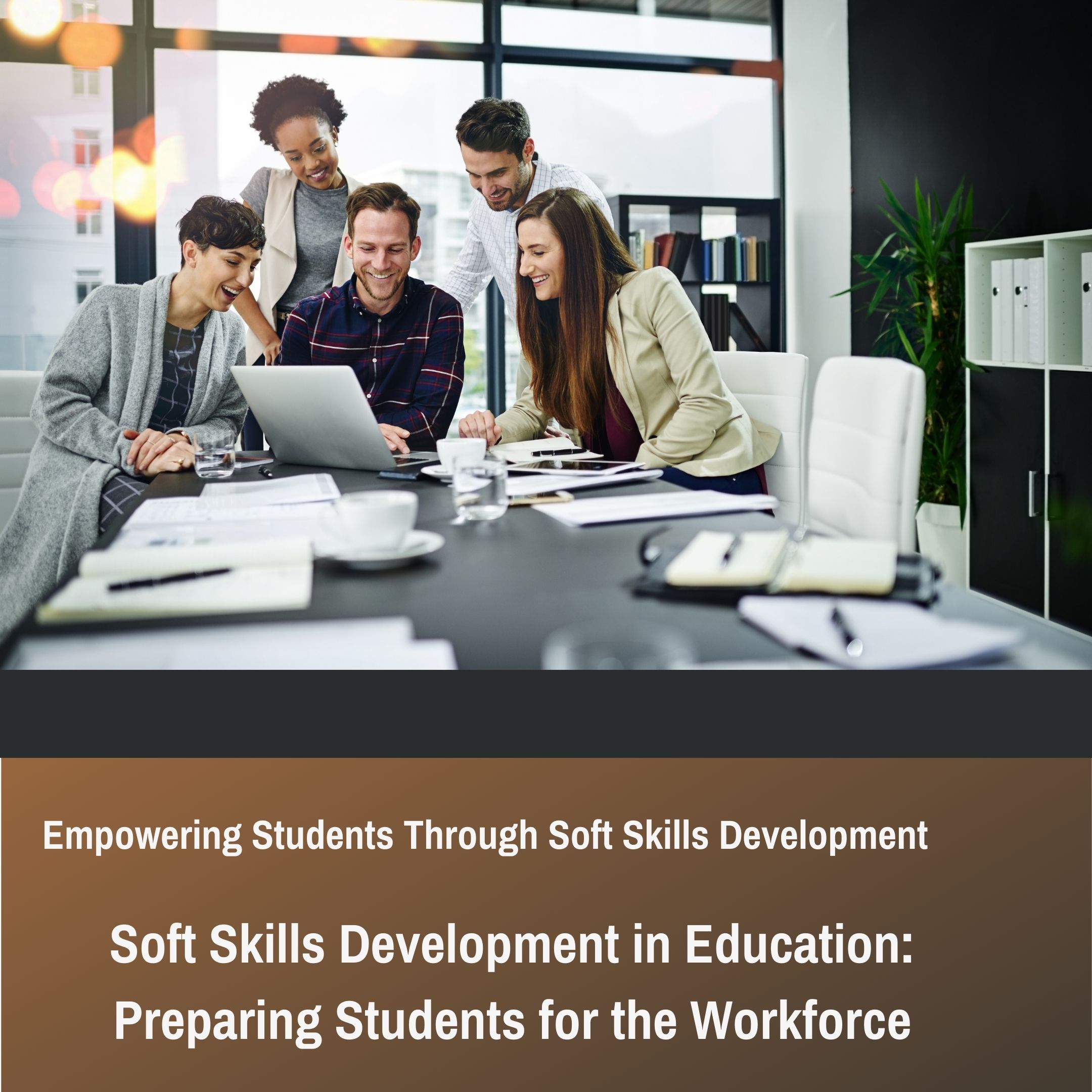In today’s competitive job market, employers seek candidates who not only possess technical knowledge but also demonstrate strong soft skills. These skills, including communication, teamwork, problem-solving, and adaptability, are critical for career success. Hence, soft skills development in education plays a crucial role in preparing students for the workforce. This blog explores the significance of these skills and provides strategies for effectively integrating them into educational curricula.
Why Soft Skills Matter
Soft skills, often referred to as interpersonal or life skills, are essential for navigating workplace dynamics. They complement technical skills and enable individuals to communicate effectively, collaborate with others, and solve problems efficiently. Unlike hard skills, which are job-specific, soft skills are transferable across various roles and industries, making them invaluable in the ever-changing job market.
Employers prioritize soft skills during the hiring process because they indicate a candidate’s potential to succeed in a team-oriented environment. According to a LinkedIn survey, 92% of talent professionals and hiring managers agree that soft skills are equally or more important than hard skills. This emphasis on soft skills highlights the need for educational institutions to focus on developing these abilities in students.
Integrating Soft Skills into Education
Educators can foster soft skills development through various strategies. These include project-based learning, collaborative activities, and real-world experiences. Integrating these methods into the curriculum allows students to practice and refine their soft skills in practical contexts.
Project-Based Learning
Project-based learning (PBL) offers a dynamic way to engage students in developing soft skills. In PBL, students work on projects that require them to solve complex, real-world problems. For example, a project on sustainable energy solutions could involve researching different energy sources, analyzing their impact, and presenting findings. Throughout the project, students collaborate, communicate their ideas, and think critically. These activities help them build essential skills like teamwork, leadership, and problem-solving.
Collaborative Activities
Schools can promote teamwork and communication through collaborative activities. Group discussions, debates, and peer reviews encourage students to articulate their thoughts and listen to others. For instance, a class debate on a current issue requires students to research, construct arguments, and present their views. Such exercises enhance their public speaking and negotiation skills. By working together, students also learn to manage different perspectives and resolve conflicts, which are crucial skills in any professional setting.
Real-World Experiences
Offering students real-world experiences, such as internships and service-learning projects, provides practical exposure to the workforce. Internships, for example, allow students to apply their soft skills in a professional environment. They learn to navigate workplace culture, communicate with colleagues, and manage tasks. Service-learning projects, on the other hand, enable students to engage with the community, develop empathy, and work on collaborative projects. These experiences are invaluable for building soft skills that are not easily taught in a traditional classroom setting.
Role of Educators
Educators play a pivotal role in modeling and teaching soft skills. By demonstrating effective communication, collaboration, and problem-solving, teachers set an example for students to follow. For instance, a teacher who listens actively during a class discussion models good communication skills. Providing constructive feedback also helps students improve their abilities. When teachers give specific feedback on a student’s presentation skills, it helps the student refine their public speaking and presentation techniques.
Building a Soft Skills Curriculum
Schools can develop a dedicated curriculum focused on soft skills to ensure comprehensive development. This curriculum might include specific courses or workshops on topics like communication, leadership, and emotional intelligence. For example, a course on emotional intelligence could teach students how to recognize and manage their emotions, leading to better interpersonal relationships. Similarly, a leadership workshop could cover aspects like decision-making, team management, and ethical leadership. Incorporating these elements into the educational program equips students with the skills they need to succeed in any career.
Supporting Students’ Soft Skills Development
Creating a supportive environment is essential for effective soft skills development. Schools should foster a culture of respect, inclusivity, and open communication. Encouraging students to express their ideas without fear of judgment helps build their confidence and self-esteem. Additionally, schools can offer resources such as mentorship programs and counseling services to support students’ personal and professional growth. Mentorship programs, for instance, provide students with guidance from experienced professionals, helping them navigate their career paths and develop necessary soft skills.
Conclusion
Soft skills development is a vital component of education, preparing students for the workforce by enhancing their interpersonal and life skills. By implementing strategies like project-based learning, collaborative activities, and real-world experiences, educators can help students build these essential skills. Furthermore, a dedicated soft skills curriculum and supportive school environment play critical roles in nurturing these abilities.



Leave a Reply